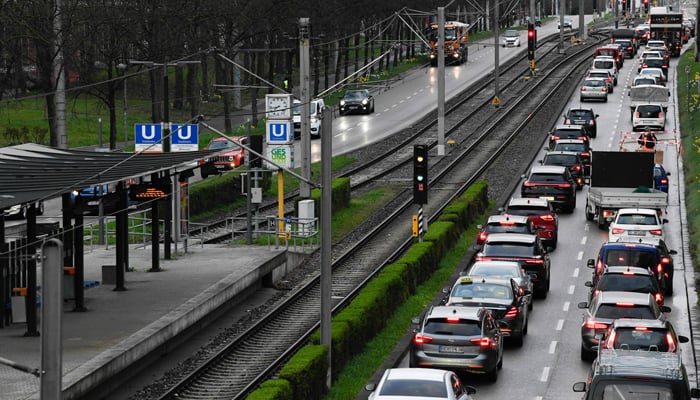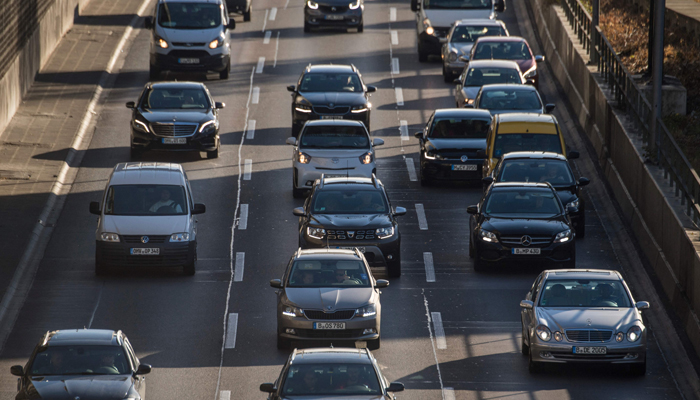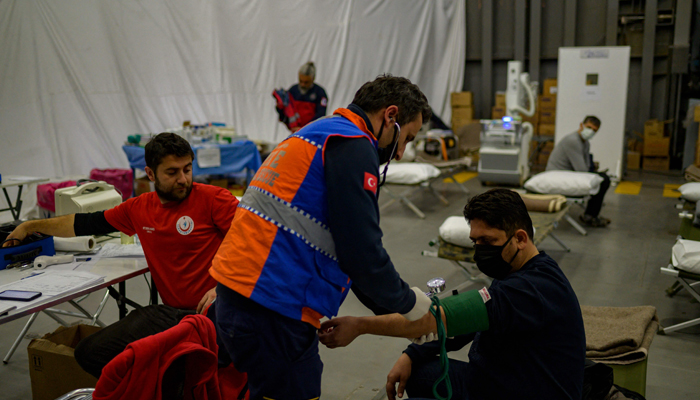Traffic noise contributing to high blood pressure among people: study
Those who had high exposure to road traffic noise and air pollution had highest hypertension risk, says author
April 02, 2023

People are commonly unaware of how traffic on the road can affect mood, behaviour and mental health. It does not only make the drivers aggressive, frustrated and furious but it also increases the level of blood pressure in people living near road traffic.
Earlier researchers have found the effect of traffic noise on people's mental health — causing stress and high blood pressure — but now they say they have found evidence of it, reported CNN.
Analysing 8.1 years of data from more than 240,000 UK participants of age 40 to 69 a team from the American College of Cardiology concluded that people living near traffic areas are likely to develop hypertension and high blood pressure.
The people in the data were those who did not initially had the problem.
Researchers in the study also inferred that "the risk of this outcome increased with the 'dose' of noise, even when adjusted for fine particles and nitrogen dioxide."
The results were published journal JACC.
Noise increases the risk of hypertension
Professor of cardiovascular medicine and population health at the University of Oxford and senior author of the study Kazem Rahimi told CNN: "Because areas that are noisy tend to have a high level of air pollution as well, one question that arises is whether each is independently contributing to risk and this was indeed the case. Living in noisy and polluted zones amplified the risk of hypertension."

"That's not to say air pollution doesn't play a role in hypertension: Those who had a high exposure to road traffic noise and air pollution had the highest hypertension risk", he noted.
Rahimi of Oxford also mentioned: "We did not detect a threshold of noise above which the risk started to increase. The risk increased with higher levels of noise, starting at the lowest category that was measured in the study."

The author also highlighted in an email that this association was graded which means when the noise level increases, the level of hypertension.
Kazem Rahimi also added: "Policymaking towards road traffic noise control as a societal effort would be helpful, such as setting stricter noise guideline and enforcement, improving road conditions and urban design, and investing advanced technology on quieter vehicles such as EVs [electric vehicles]."
According to World Health Organization (WHO) estimates, 1.28 billion people from age 30-79 years are suffering from hypertension globally. The estimates also suggested that two-thirds of the adults are living in low and middle-income countries.
High blood pressure leads to cardiovascular diseases and strokes and around 46% of adults are oblivious that they have the condition hypertension.
The Centers for Disease and Control Prevention has noted that these two conditions have been the leading cause of death in America.
WHO underlined obesity, lack of physical activity increased consumption of alcohol and smoking as risk factors that cause high blood pressure.
Increased intake of sodium also causes blood pressure to increase. WHO in a study also warned "member states to keep regulations on increased sodium intake."
The best way to keep your health in check is to monitor your blood pressure. If it exceeds the normal range do consult your doctor about the matter.











